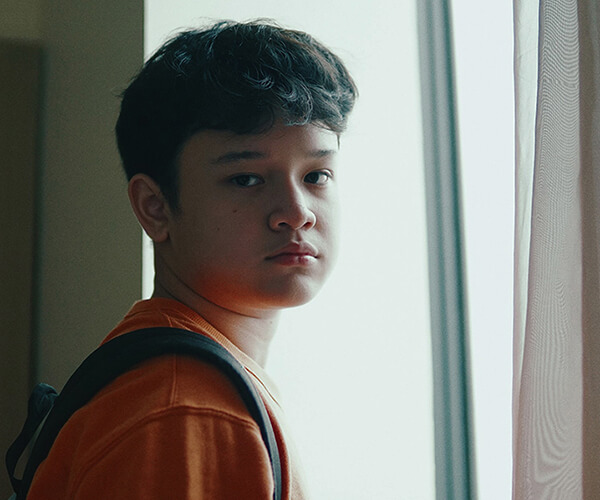
Normal anxiety in kids
Anxiety is a normal human emotion and serves an important purpose. To keep kids safe. When kids feel anxious about trying a bigger and better trick on their skateboard or about jumping in a car with people they don’t really know, any anxiety they feel helps kids to avoid the dangers that could come with those choices. Anxiety is also highly motivating, prompting the skater to work harder to build up progressively to harder tricks and more revision if anxiety about an up and coming test is rising.
With normal anxiety, it settles down after the stressor has passed. Anxiety that’s beginning to become, or is already, a problem hangs around and gets in the way of daily life. When anxiety is becoming a chronic it’s presenting a challenge on more days than not during a given week and is ongoing over a period of weeks to months.
A disorder is considered present when anxiety starts to interfere with a child’s day-to-day functioning and quality of life. Watch for when anxiety becomes debilitating, distressing and becomes more severe, frequent and persistent over time.[i]
When should I be worried?
When it comes to our kids’ mental health it always pays to be over cautious. I always like to say that if you’re questioning their mental health in any way, that’s a good indication that a conversation with your family doctor is in order. I also like to recommend that as a parent you keep some notes about what you’re observing with regard to your child’s behaviour, emotions and thinking. This is so helpful if you do end up having a conversation with the doctor as you can more easily relay what’s been happening and with more detail.
Some of the things to keep an eye out for are:
- Is your child able to do the things they normally would on any given day?
- Are you noticing that your child is saying or doing things that are out of the ordinary?
- How often is your child showing signs of changed behaviour?
- Has their teacher mentioned any changes in concentration, learning or behaviour at school?
- Is your child still looking to connect with friends in the same way they have in the past?
Signs and symptoms of anxiety
There are lots of different signs and symptoms when it comes to anxiety. Here I’ve grouped them according to their impact on children’s emotions and physiology, behaviour, thinking and dependence.
Emotionally and physically
Emotional and physical signs and symptoms of anxiety include:
- chest pain or discomfort
- discomfort or pain in the stomach, nausea
- dizziness, light-headedness, or unsteady feelings
- feeling foggy, or a feeling of being detached from yourself
- feeling hot or cold
- feeling a lump in the throat or choking
- sleeplessness
- seeing spots
- headaches
- numbness or tingling
- diarrhoea
- tiredness
- rapid heart rate
- rapid breathing (hyperventilating), feelings of shortness of breath, or breath holding
- sweating
- trembling or shaking
- regularly crying over small problems
- angry outbursts
- often appearing nervous.
Behaviour
- not participating in class, or too afraid to speak up or raise a hand
- excessive fear of making mistakes
- wanting to be ‘perfect’ in appearance and schoolwork
- refusing routine injections or visits to the dentist
- refusing to hang out with other kids or having few friends because of social fears
- not sleeping in their own bedroom or refusing to attend sleepovers
- refusing to go to school for any number of reasons (for example, an exam, performances, bullying, social situation)
- refusing to participate in sports, dance or other performance-related activities
- disliking taking risks or trying anything new
- avoiding situations they feel worried or scared about.
Thinking
Examples of worries experienced by anxious children include:
- I’m going to fail the test.
- What if I get it wrong?
- Mum might forget to pick me up after school.
- My teacher will yell at me and the kids will laugh.
- That dog might bite me.
- What if I fall off my bike and embarrass myself?
- I’ll embarrass myself in front of my friends.
- What if I get in trouble?
- What if I’m sick at school?
- What if my mum or dad dies?
Dependence
- asks for help with tasks they can do for themselves
- won’t go to sleep without you or another trusted adult nearby
- asks, ‘Will you do it for me?’ or ‘Will you tell them for me?’
- sees the dangerous or negative side of situations
- asks ‘Are you sure I won’t get sick?’
- asks ‘Are you sure you’ll be on time to pick me up?’
- asks parents to talk to teachers instead of doing so themselves
- doesn’t want to be away from home for long or at all
- wants a parent to accompany them to parties and stay
- seeks ongoing reassurance about a worry (for example, that skin irritation is not cancer)
- frequently shares thoughts and worries
- shows dependent behaviour including clinginess.
Causes of anxiety in children
Some kids, like me way back when, draw the ‘short straw’ when it comes to genetics and have an inherited tendency towards anxiety. That said, even with a genetic predisposition to anxiety it may not be ‘switched on’. Anxiety in children is usually triggered by something happening in a child’s environment, something that is, or that the child perceives to be frightening or traumatising.
Some of the causes of anxiety include:
- Uncertainty and change as seen in the COVID-19 pandemic
- Stressful home environment
- Death of a friend or family member
- Ongoing stress at school as a result of exams, peer disputes or bullying
- Experiencing ADHD or an autism spectrum disorder
- Brain chemistry and availability of neurotransmitters such as serotonin
- Learned behaviours
How can I help my anxious child?
There is so much you can do to help your child and so much in the way of professional help available. Listening to what your child is experiencing and letting them know you understand what it’s like to feel scared and worried. Helping your child to develop an understanding of anxiety, what helps them to cope when anxiety shows up and how they can turn down the dial on their anxiety by learning new skills are also wonderful ways to support your anxious child or teen. Listening, providing lots of understanding, love, warmth and empathy will do wonders to help your child feel safe, secure and supported.
Next, make an appointment with your family doctor to talk over what’s been happening. Let your child know that you’re there for them and that you’ll be there every step of the way so they feel understood and cared for. Watch out for avoidance which is a hallmark sign of anxiety. It makes sense, doesn’t it, that when something feels scary and frightening kids would rather not participate or be involved in any way. Instead of avoiding, which can amplify anxiety, come up with a plan together to take steps in the direction of what might provoke anxiety, but is important to move towards. Small steps and lots of support to tolerate discomfort help enormously.
As parents we are the very best support for our anxious kids when we’re their anxiety coach or co-coach if they have a psychologist or counsellor also supporting them. Learn as much as you can about your child’s anxiety and know that your support, education and direction is paramount to their anxiety management. My book, Anxious Kids, is the resource I wish my parents and teachers had when I was an anxious kid. If you’d like a copy to support you and your child, you can purchase one here.


about
Jodi is on a mission to elevate mental health and wellbeing in families, classrooms and workplaces.


free 5-day
Calm your anxious brain
mini course

Recent Posts

free 5-day
Calm your anxious brain
mini course
Sign up for my free 5-day ‘Calm Your Anxious Brain’ email mini-course. Put the strategies into place for yourself, light the way for your kids, or do both.






